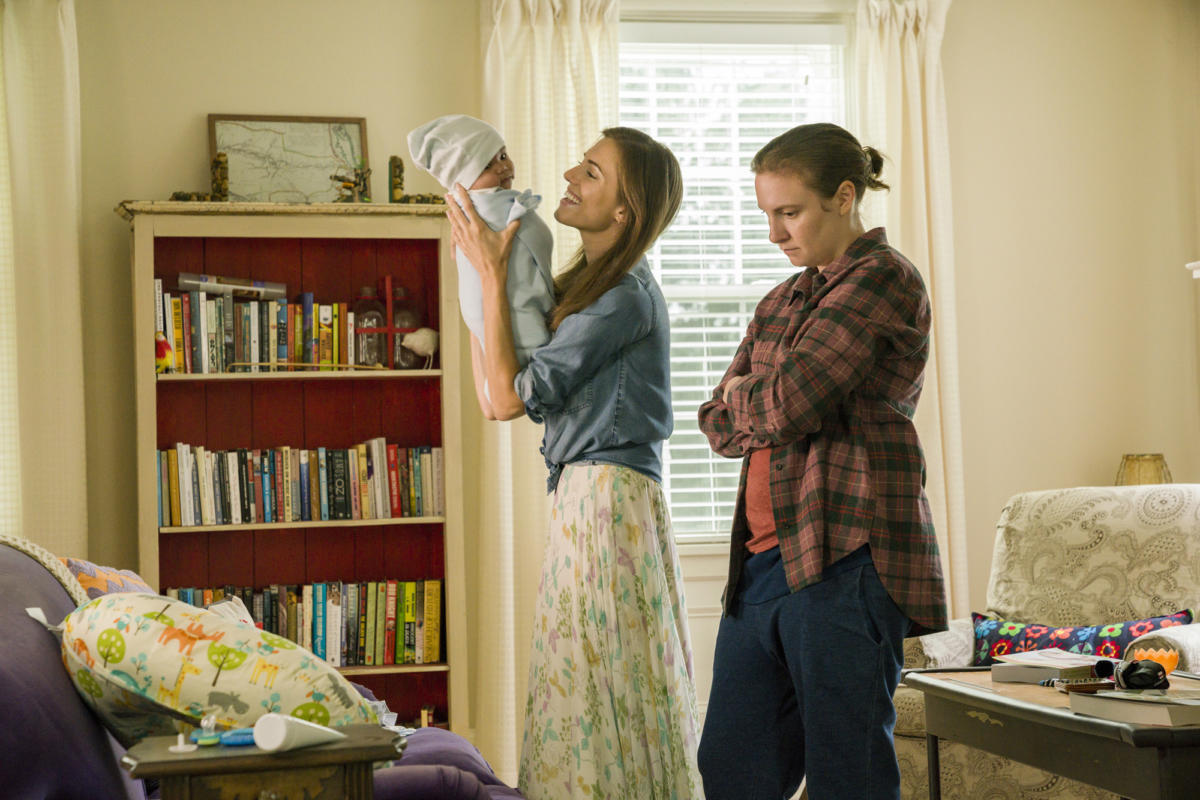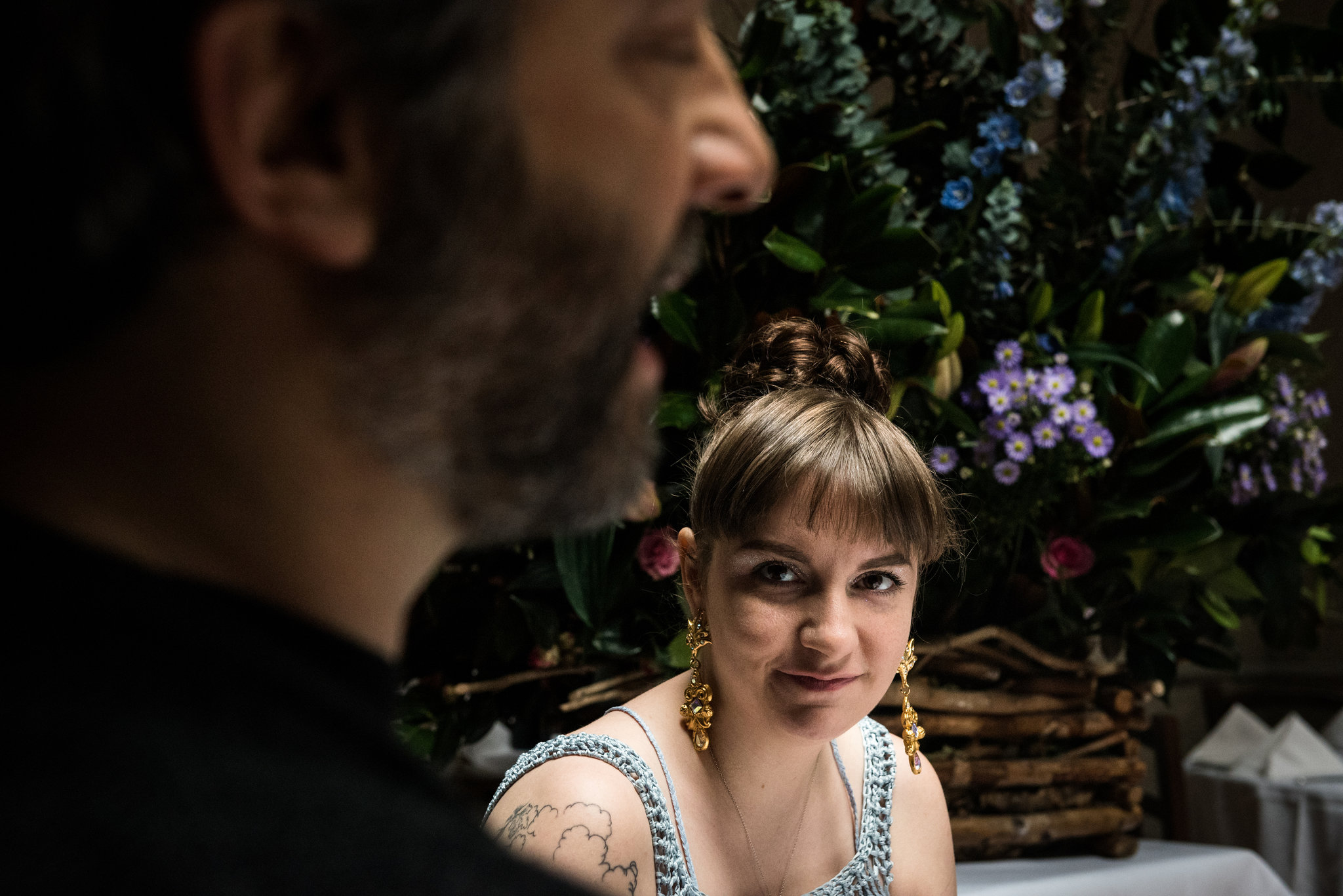
Interesting New Yorker article by Emily Nussbaum here on the final episode of Girls.
I don’t agree with her on everything, but she’s dead-on about the noise around the series being exhausting. It will be nice to never read any more bloviating social commentary on what was always just an extended, edgier female-Woody Allen movie. Dunham would hate that classification because she assumes Allen is guilty of the baseless charges made by a bitter ex-girlfriend, but I mean it as the greatest compliment. Like Allen, she is a major comedic talent of our time. Her “Hannah” may not be the voice of a generation, but she is – was – a hilarious voice of selfish, quirky, wonderfully human angst.
Nussbaum is right: the finale was raggedy and anti-climactic, but also in perfect keeping with the digressive style that distinguished the whole series. No pat answers, no promises of sudden maturity, just the trial of motherhood testing Hannah’s fragile mental health. I loved the montage of her trying to reason with her fussy baby. Talking to him like he’s just another disappointing male in her life. This maternal thing is going to be a very slow turning, bit by bit, nipple by rejected nipple. She’s still a child herself.
But ironically, like so many social critics of the show, Nussbaum wants to inject politics and see the fight between Hannah and her mother as a sop to said critics. I don’t think so. It was just good brutal writing. Dunham was not about to let her character off the hook just because the series was ending. Same as she resisted the urge to reunite the girl foursome for some maudlin group hug, or to make Marnie less of a neurotic mess (her British stewardess sexual fantasy was so oddly specific and politically incorrect – the show at it’s best). She has the faith in her audience to expect them to forgive Hannah her outbursts, or to understand at least. Her last look straight into the camera was relieved, but also as nakedly vulnerable as any of the series’ infamous sex scenes.

What critics on both the left and right continue to get completely wrong is that Dunham is too smart to fall for either traditional tropes or strict feminist dogma. She knows her messy contradictions are to be savored.
The season as a whole was bumpy, but with some classic moments. Which, again, describes the entire series. The third season was a pretty dismal failure, but the writing rebounded beautifully in the last few seasons. A highlight for me was Hannah’s untethered detour into bucolic college life in Iowa, where she felt like an alien pervert in her writing workshop and her bike was immediately stolen New York-style. The surfing camp episode this season was a close second. It was in these fish-out-of-water moments that Dunham’s self-awareness really shined for me. The laughs were choking and bittersweet.
As unlikely as it seems, given my age and sex demographic, her work, like all great work, inspired me to be more honest in my own writing…
And ultimately, I admire the way she refused to wrap the show up with a bow, stuck to her short-story aesthetic all the way to the end.
It will be fascinating to see where Dunham’s career goes from here. Ater making such a grand autobiographical statement before the age of 30, how will she apply her genius to other formats and stories? It may be that by middle-age she will have taken over Judd Apatow’s position as comedy guru and puppet master for younger “voices”. Maybe she will turn to drama instead.
In any case, she has already achieved something writers often attempt but rarely succeed at – turning flaws of body and heart into pop culture gold.

